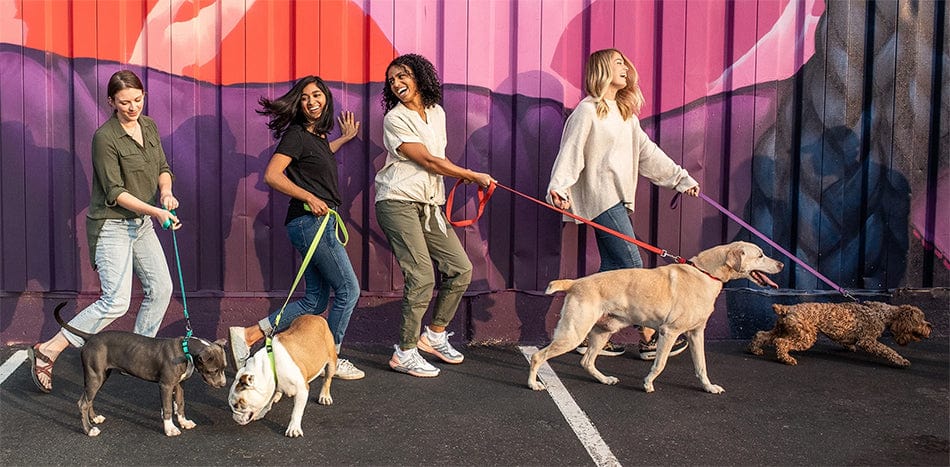Your cart is empty. Let's fix that!


All dog owners at some point in time have witnessed their adorable pup break into a mid-snooze run. We all know this happens, but why do dogs run in their sleep? In addition to running, dogs will often, twitch, growl, bark, or yelp in their sleep. This behavior is similar to humans sleepwalking or talking in their sleep.
Just like humans, doggos have all sorts of dreams. A sleeping dog’s brain waves are similar to the brain waves that humans have when they dream. Dreaming is healthy for your doggo’s brain, so you should let your dog continue to sleep even if they are moving around.
Additionally, puppies can get muscle twitches in their sleep. If your fur baby isn’t dreaming, this twitching is most likely muscle related and is an important part of developing strong muscles and toning them.
However, a behavior you should be on the lookout for is seizures. Though it’s fairly rare, dogs can have seizures while they sleep. You should easily be able to differentiate a seizure from dream running based on the type of movement. Your dog could be having a seizure if their twitching is rigid and the movements seem much more violent.
Dogs experience both REM (rapid eye movement) and slow-wave sleep, with REM being a deeper stage of sleep. In humans, this is when dreams occur. Dogs spend less time in REM than humans, which is why dogs require more sleep to feel rested. In REM sleep, dogs may react to their dreams by moving their legs, whimpering, or even barking, which explains why dogs run in their sleep.
If your dog’s sleeping schedule resembles a sloth’s, you may wonder if they are sleeping too much. Chances are, they’re fine and just enjoy a good snooze!
Sleep patterns of dogs vary based on their age, size, and exercise patterns.
Older dogs have a slower metabolism and require more sleep, and they tend to nap throughout the day. Puppies also require more sleep than adult dogs since sleep helps them develop.
Large dogs require more sleep than smaller dogs since their large bodies use up more energy.
When dogs have plenty of exercise, they will fall into a deep sleep and are more likely to dream. The key to helping your dog get a good night’s sleep is providing them with mental and physical activity, which can be done indoors during winter months.
By providing a calming environment and cozy bed, your pup is more likely to have sweet dreams. Don’t be stingy on the treats, pups can be given a delicious morsel before bed and when they wake up!